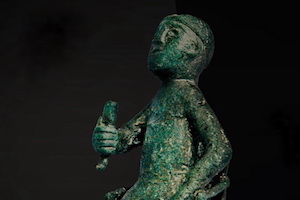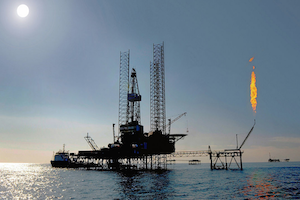Georgian Wine and Its Narrative Drive Development
By Mamuka Tsereteli
December 7, 2018, the CACI Analyst
Georgian wine and its narrative are emerging as a major driver for the global marketing of the country. The evidence of 8,000 year old wines, discovered in Georgia, helped galvanize the promotion of the country as a Cradle of Wine. The story of Georgian wine contributed to reaching record numbers in wine exports, as well as record numbers of visitors to the country, thus contributing to the development and economic growth of Georgia.

Thinking Big About Caspian Energy
By Stephen Blank
November 29, 2018, the CACI Analyst
The signing of the Caspian convention in August 2018 has opened up exciting new possibilities for getting Central Asian oil and gas to European and global markets. The long-desired Southern Gas Corridor (SGC) from both shores of the Caspian has thus become a possibility. By thinking big, we can use Caspian gas for beneficial economic and political purposes. Whatever route Caspian energy takes to Europe, it must traverse the Caucasus and can be of substantial value in transforming the Eurasian geopolitical scene and agenda. Specifically, those parties who have the most to gain form resolving the Nagorno-Karabakh conflict can now devise a peace program that incorporates the use of energy to help foster an enduring peace between Armenia and Azerbaijan, reduce Russia’s ability to manipulate this conflict, and at the same time enrich them both as well as European consumers.

Towards a Central Asia and Caucasus Trade Bloc for Belt and Road
By Tristan Kenderdine
October 30, 2018, the CACI Analyst
In the trade war with the U.S., China has clearly shown that it is willing to reject Pacific trade partners based on political over economic considerations. Beijing’s wider policy to develop industrial and agroindustrial capacity in Central Asia, the Caucasus and the Middle East means that these economies can use short-term structural changes in global trade dynamics to their longer term advantage. Ultimately, all states suffer in a trade war. If Central Asian, U.S. and European producers all had open access to China’s markets, all sides would benefit in the long run. In the short term though, a U.S.-China trade war is a huge opportunity for Central Asian economies to soak up China’s heavy industry outward direct investment despite the risk of a China policy bank debt-trap.

A breakthrough in Iran-Azerbaijan relations?
By Fariz Ismailzade
February 19th, 2016, The CACI Analyst
After a decade of cold relations, Azerbaijan and Iran are eager to warm up to each other, as both nations are hungry for foreign investments and boosted regional trade. As world oil prices hit low levels, Azerbaijan and Iran are looking for ways to develop their non-oil economy, integrate regional transport networks and boost mutually advantageous business projects. In that respect, thorny political issues that have dominated the bilateral relations appear to have been put on the backburner. President Ilham Aliyev’s upcoming visit to Iran will aim at lifting Azerbaijani-Iranian relations to a new high.
How the Russian-Turkish crisis affects Central Asia and the Caucasus
By Ipek Velioglu
February 8th, 2016, The CACI Analyst
Turkish-Russian relations have not recovered after the downing of a Russian jet last November. On the contrary, the tension is spreading into neighboring areas. Russia is pressuring the Central Asian countries, politically and economically, to constrain Turkey’s activities in the region. Although Ankara’s influence in the Central Asian Republics is limited, it developed good ties with almost all them after the collapse of the USSR. Turkey was the first country to recognize the new-born states; it has supported their independence and contributed to their integration into the international system. Under the AKP’s rule, Turkey has also become a major donor for some of them. Central Asian countries now seek risk being dragged into the Turkish-Russian standoff.




